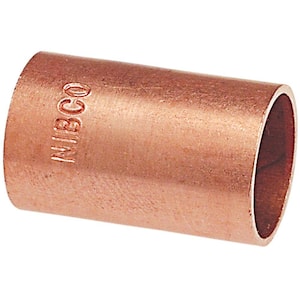Why Copper Products Are Essential for Electric Applications and Reliable Electrical Wiring
Discovering the Diverse Applications of Copper Products in Modern Industries
Copper products have actually developed themselves as important components across a myriad of contemporary industries, mostly as a result of their amazing conductivity, malleability, and resistance to deterioration. From improving the performance of electrical systems to playing a crucial duty in sustainable energy innovations, the convenience of copper appears. Additionally, its recyclability placements it as a sustainable selection in production and electronic devices. As markets increasingly prioritize innovation and sustainability, the varied applications of copper necessitate a closer exam, specifically regarding their prospective effect on future environmental techniques and technical improvements.
Electric Applications of Copper
Copper is an essential material in the electrical sector, representing approximately 60% of the complete demand for non-ferrous metals around the world - Copper Products. Its superior electrical conductivity, which is almost twice that of light weight aluminum, makes it the favored selection for a variety of electrical applications. From wiring systems in commercial and residential buildings to high-voltage power transmission lines, copper guarantees efficiency and dependability in electrical energy delivery
Along with electrical wiring, copper is essential to the manufacturing of electrical elements such as electric motors, transformers, and generators. These elements utilize copper's thermal conductivity and pliability, necessary for heat dissipation and effective performance. Additionally, copper's resistance to corrosion improves the lifespan and longevity of electrical systems, making it an economical solution in the long-term.
The growth of renewable power sources, such as solar and wind power, has actually further enhanced the demand for copper in electrical applications. As industries shift in the direction of lasting energy options, copper's function comes to be a lot more important. Generally, the adaptability and efficiency qualities of copper solidify its standing as a keystone material within the electric field, driving development and efficiency across numerous applications.
Plumbing and Piping Solutions
In contemporary pipes systems, the option of materials dramatically affects both functionality and longevity. Copper has become a favored choice as a result of its unique homes, consisting of rust resistance and antimicrobial characteristics. These qualities make certain that copper piping continues to be sturdy and secure for delivering potable water, a critical consideration in residential and commercial applications.
Among the essential benefits of copper in pipes is its ability to endure high temperatures and stress, making it appropriate for a selection of applications, from warm water systems to heating and cooling down networks. In addition, copper's adaptability permits less complicated installation in intricate piping layouts, lowering the risk of failures and leaks.
An additional noteworthy advantage is copper's lengthy life-span, frequently surpassing 50 years with correct upkeep. This longevity not only lessens replacement costs however likewise adds to lasting methods by lowering waste. Copper's recyclability lines up with modern-day ecological requirements, advertising a circular economic situation within the pipes industry.
Copper in Renewable Energy
The adaptability of copper expands beyond pipes applications, playing an important role in the renewable resource market. Its excellent electrical and thermal conductivity makes it a crucial material in the manufacturing and distribution of renewable power sources, particularly solar and wind power. In photovoltaic panels, copper is utilized in photovoltaic cells and circuitry, facilitating efficient energy conversion and transmission. Its resistance to corrosion makes certain resilient efficiency, which is vital for making the most of energy output over time.

Furthermore, as the worldwide a knockout post need for electrical vehicles (EVs) boosts, copper's role in battery systems and billing framework ends up being much more significant. The material's capacity to perform power effectively is important to the efficiency of EV batteries, boosting variety and billing rate.
Copper's Role in Electronics
Electronic devices producing relies heavily on copper's extraordinary buildings, particularly its high electrical conductivity and thermal effectiveness. These features find more information make copper an excellent option for a vast array of digital components, including adapters, circuit card, and circuitry. The metal's capacity to successfully send electric signals makes sure marginal power loss, which is vital in high-performance digital devices.
Moreover, copper's thermal conductivity plays a considerable role in warmth dissipation, securing delicate parts from overheating. This is particularly crucial in contemporary electronics, where small layouts cause enhanced heat generation. Copper is likewise preferred for its malleability and ductility, permitting it to be easily shaped right into detailed styles that satisfy the demands of sophisticated digital applications.
With the surge of consumer electronic devices, telecommunications, and electrical lorries, the demand for copper in the electronic devices industry proceeds to grow. Therefore, copper stays a foundation product in the ever-expanding area of electronic devices.
Cutting-edge Uses in Production

One notable application is in additive manufacturing, where copper-based products are used in 3D printing procedures. This permits the development of light-weight parts and complex geometries, particularly in the aerospace and auto markets. Furthermore, copper's thermal conductivity makes it a suitable option for warm exchangers, improving efficiency in commercial cooling systems.
In addition, the rise of wise production has seen the unification of copper in IoT gadgets, where its conductive capabilities support innovative noticing technologies. In the realm of renewable resource, copper is crucial in the manufacturing of photovoltaic panels and wind generators, facilitating extra efficient energy conversion and circulation.
As industries pursue sustainability and advancement, copper's convenience and performance proceed to place it as useful reference an important material, driving advancements in production and adding to the growth of smarter, extra efficient products.
Conclusion
The integral duty of copper in eco-friendly power and its important function in electronic devices highlight its importance in advancing sustainable techniques. Collectively, these applications illustrate copper's important payment to technological progress and industrial performance in modern society.
From improving the performance of electric systems to playing an essential duty in eco-friendly energy modern technologies, the versatility of copper is evident. As markets significantly focus on innovation and sustainability, the diverse applications of copper require a closer examination, particularly concerning their potential influence on future ecological practices and technological advancements.
The development of sustainable power sources, such as solar and wind power, has actually additionally boosted the need for copper in electrical applications. Generally, the flexibility and efficiency characteristics of copper strengthen its condition as a keystone product within the electrical industry, driving innovation and efficiency across different applications.
The adaptability of copper extends beyond plumbing applications, playing a vital function in the renewable power sector.